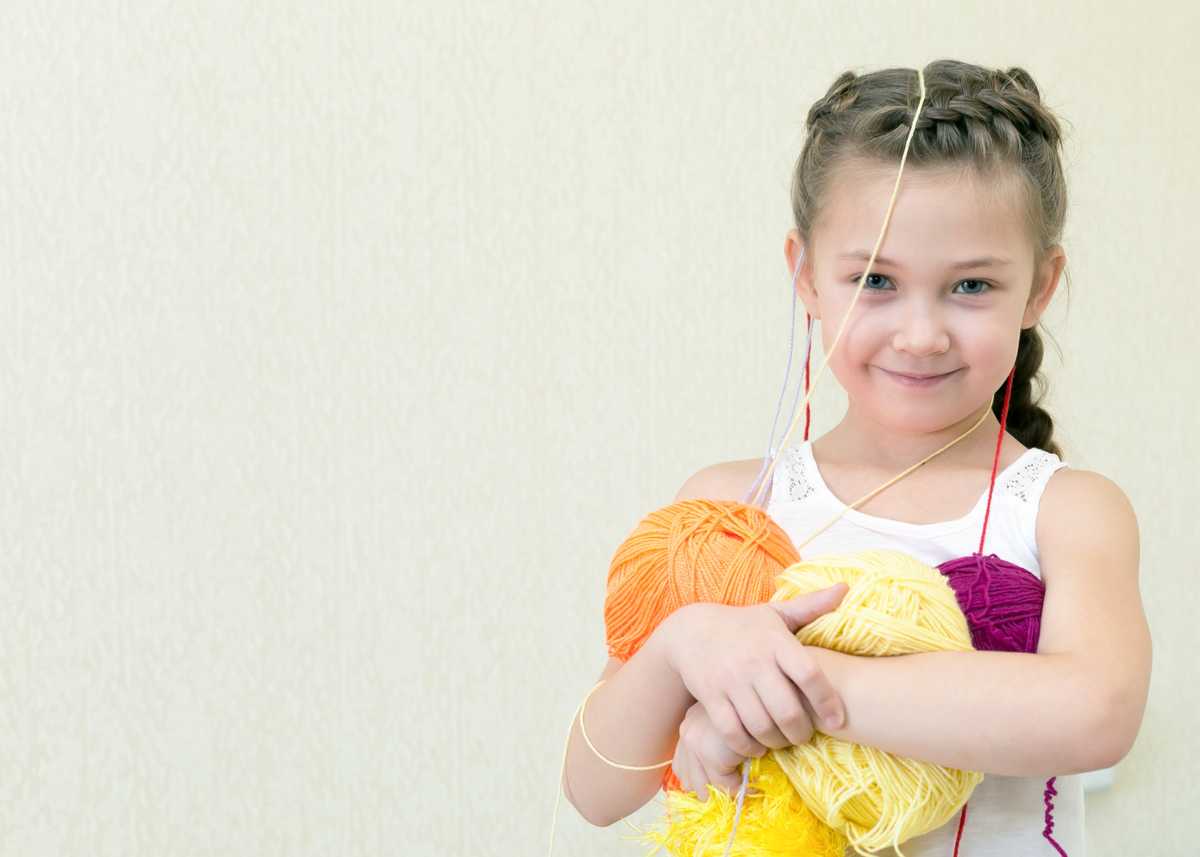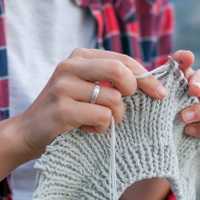Crochet History 1900s - 21st Century

Crochet History 1900s - 21st Century
By K. Perry
By K. Perry
Lavish crochet emerged alongside other forms of elaborate needlework in the nineteenth century. When printed materials began to be mass-produced in the mid-nineteenth century, the popularity of crochet increased vastly.
Patterns for silk thread purses were the first to have been published, from about 1824 in Holland. Prior to this date, crochet was passed to future generations without written patterns but rather duplicated from small crocheted samples.
Victorian crochet hooks were made of materials such as ivory, brass, various woods, and other bone material. They were often ornately carved, the most impressive often being given as wedding gifts. Crocheted bags, clothing and décor were all popular. Crochet was considered a suitable activity for wealthy women, along with other forms of needlework. Bead crochet began to appear on the market in the 1830s. Knitting with beads was already in fashion at this time.
Crochet became a cottage industry in Ireland with a lace called Irish crochet or guipure lace. In the mid-nineteenth century, it became a large industry owing to a need for people to supplement their income due to the great potato famine of that time. It is still a cottage industry in some countries such as India, Greece, Italy, and some Asian countries.
Crochet samplers dating from the nineteenth century are shown in many museums. A variety of crochet and knitting books were published from the mid-nineteenth century through the 1920s. Filet crochet became very popular from the 1850s.
Crochet continued to be popular into the early twentieth century. The 1920s brought a flood of bead crocheted bags with piles of bead loops to complete the flapper look. From 1937 through 1940’s there were crochet contests for workmanship design and speed. The onset of World War II saw the craft halt, owing to shortages in available materials. Bead crochet bags were popular throughout the 1950’s. Crochet became an accepted art form in the 1960s and more experimentation in textile art took place including international fiber shows. Crochet began to regain its popularity in the 1970s, when it became popular to wear crocheted items.
The 1980s and 1990s brought a renaissance of bead and thread crochet. In the early 1990s bead knitted bags gained popularity, which increased the demand for bead crocheted bags.
In 1994 thirty four million American women crocheted or knitted, in 2002 this figure had increased to thirty eight million.
Crochet today is mainly created by using soft yarns to produce garments and blankets. Although the crochet stitch can be made by machine, it continues to be a home craft.
Copyright, http://www.officialguidetocrochet.com
Providing Tips and Help with Crochet for the beginner and more experienced. Crochet History Part 1
Article Source: http://EzineArticles.com/?expert=K._Perry
Lavish crochet emerged alongside other forms of elaborate needlework in the nineteenth century. When printed materials began to be mass-produced in the mid-nineteenth century, the popularity of crochet increased vastly.
Patterns for silk thread purses were the first to have been published, from about 1824 in Holland. Prior to this date, crochet was passed to future generations without written patterns but rather duplicated from small crocheted samples.
Victorian crochet hooks were made of materials such as ivory, brass, various woods, and other bone material. They were often ornately carved, the most impressive often being given as wedding gifts. Crocheted bags, clothing and décor were all popular. Crochet was considered a suitable activity for wealthy women, along with other forms of needlework. Bead crochet began to appear on the market in the 1830s. Knitting with beads was already in fashion at this time.
Crochet became a cottage industry in Ireland with a lace called Irish crochet or guipure lace. In the mid-nineteenth century, it became a large industry owing to a need for people to supplement their income due to the great potato famine of that time. It is still a cottage industry in some countries such as India, Greece, Italy, and some Asian countries.
Crochet samplers dating from the nineteenth century are shown in many museums. A variety of crochet and knitting books were published from the mid-nineteenth century through the 1920s. Filet crochet became very popular from the 1850s.
Crochet continued to be popular into the early twentieth century. The 1920s brought a flood of bead crocheted bags with piles of bead loops to complete the flapper look. From 1937 through 1940’s there were crochet contests for workmanship design and speed. The onset of World War II saw the craft halt, owing to shortages in available materials. Bead crochet bags were popular throughout the 1950’s. Crochet became an accepted art form in the 1960s and more experimentation in textile art took place including international fiber shows. Crochet began to regain its popularity in the 1970s, when it became popular to wear crocheted items.
The 1980s and 1990s brought a renaissance of bead and thread crochet. In the early 1990s bead knitted bags gained popularity, which increased the demand for bead crocheted bags.
In 1994 thirty four million American women crocheted or knitted, in 2002 this figure had increased to thirty eight million.
Crochet today is mainly created by using soft yarns to produce garments and blankets. Although the crochet stitch can be made by machine, it continues to be a home craft.
Copyright, http://www.officialguidetocrochet.com
Providing Tips and Help with Crochet for the beginner and more experienced. Crochet History Part 1
Article Source: http://EzineArticles.com/?expert=K._Perry




